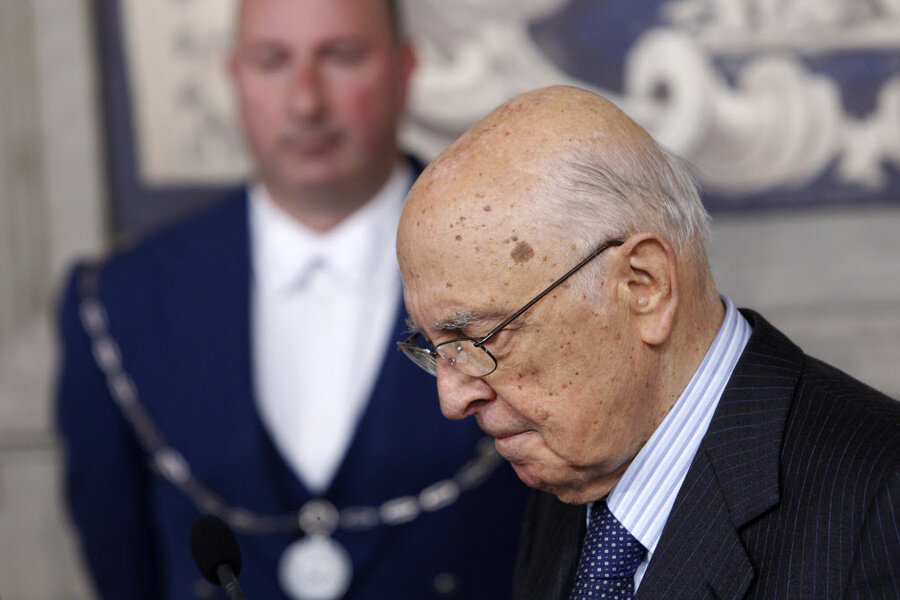Still at a stalemate, Italy's president considers stepping down
Loading...
Italian President Giorgio Napolitano on Saturday ruled out standing down to make way for new parliamentary elections after the failure of attempts to form a government this week, saying he would stay in place until the very end of his mandate in May.
Earlier, all of Italy's main newspapers said Napolitano, whose term ends on May 15, was considering stepping down to get around constitutional provisions which prevent a president dissolving parliament and calling elections in the final months of his mandate.
But the 87-year-old head of state told reporters he would continue his efforts to break the deadlock since elections last month that left no single group with enough power to govern.
"I will continue until the last day of my mandate to do as my sense of national responsibility suggests, without hiding from the country the difficulties that I am still facing," he told reporters at his Quirinale palace.
He said he would ask two small groups of experts to formulate proposals for institutional and economic reforms that could be supported by all political parties.
Napolitano met leaders of the main parties on Friday to try to find a way out of the stalemate, which has raised fears of prolonged uncertainty in the euro zone's third-largest economy.
However with all of the three main groups in parliament clinging to entrenched positions that have prevented a majority being formed in parliament, hopes of a solution that would avoid a new snap election have faded.
Centre-left leader Pier Luigi Bersani, whose party controls the lower house but does not have a majority in theSenate, failed to win enough support to form a government from any of the other parties during a week of talks.
He rejected demands by centre-right leader Silvio Berlusconi for a cross-party coalition deal that would give the scandal-plagued former prime minister a share in power and the right to decide Napolitano's successor.
Both Berlusconi's group and the populist 5-Star Movement led by ex-comic Beppe Grillo have also ruled out supporting a new technocrat government like the one led by outgoing Prime Minister Mario Monti, blocking what appears to be the only other option.







